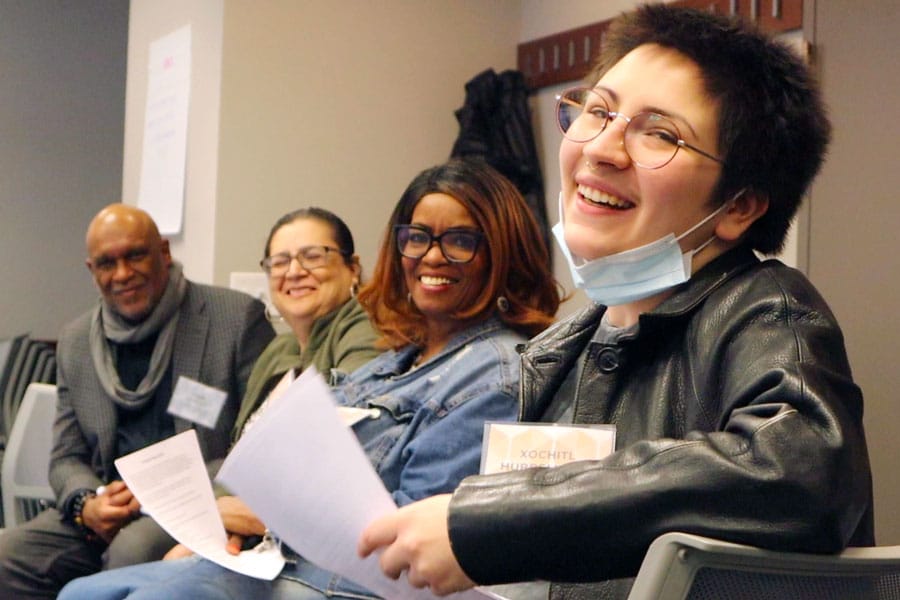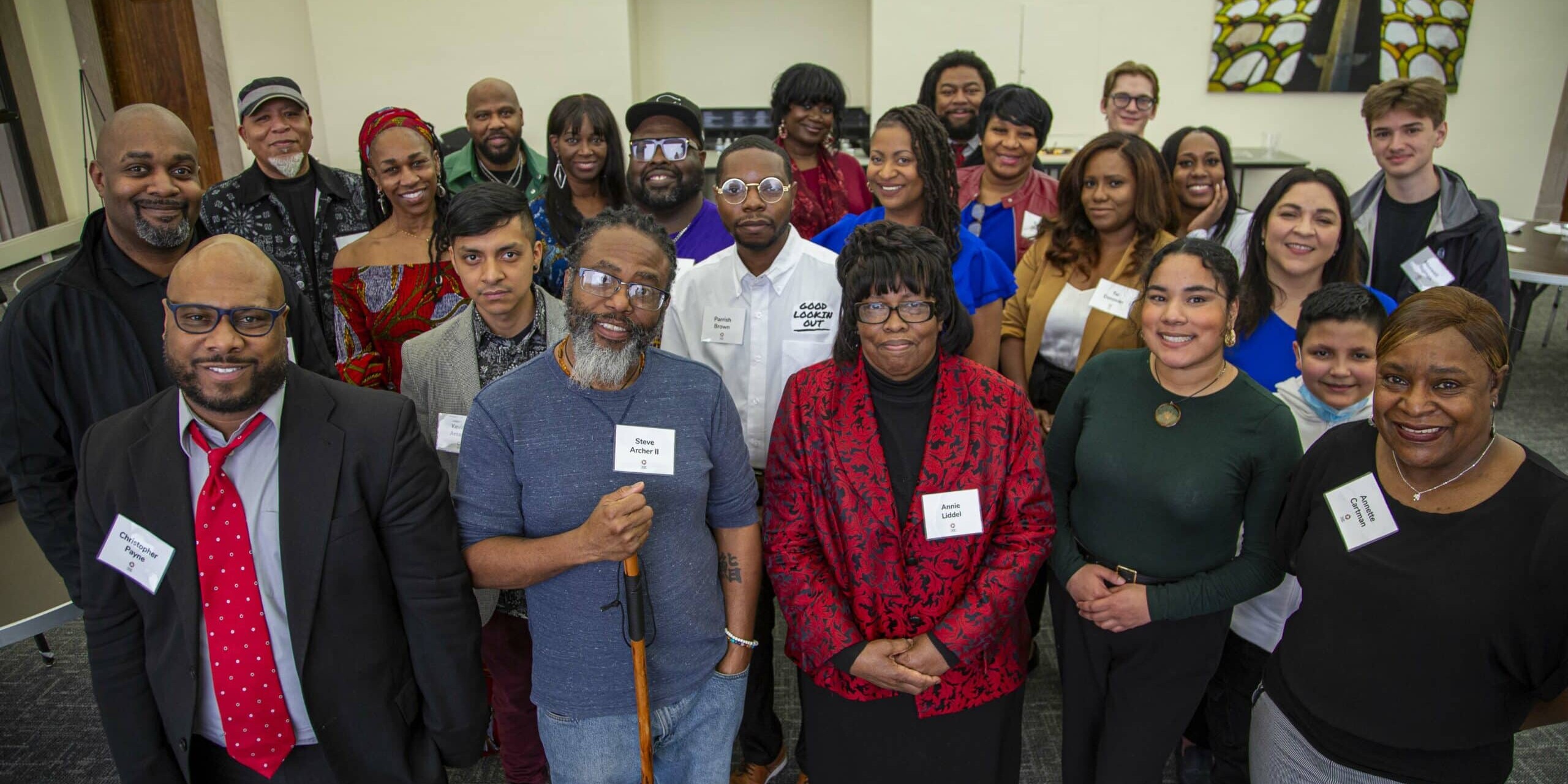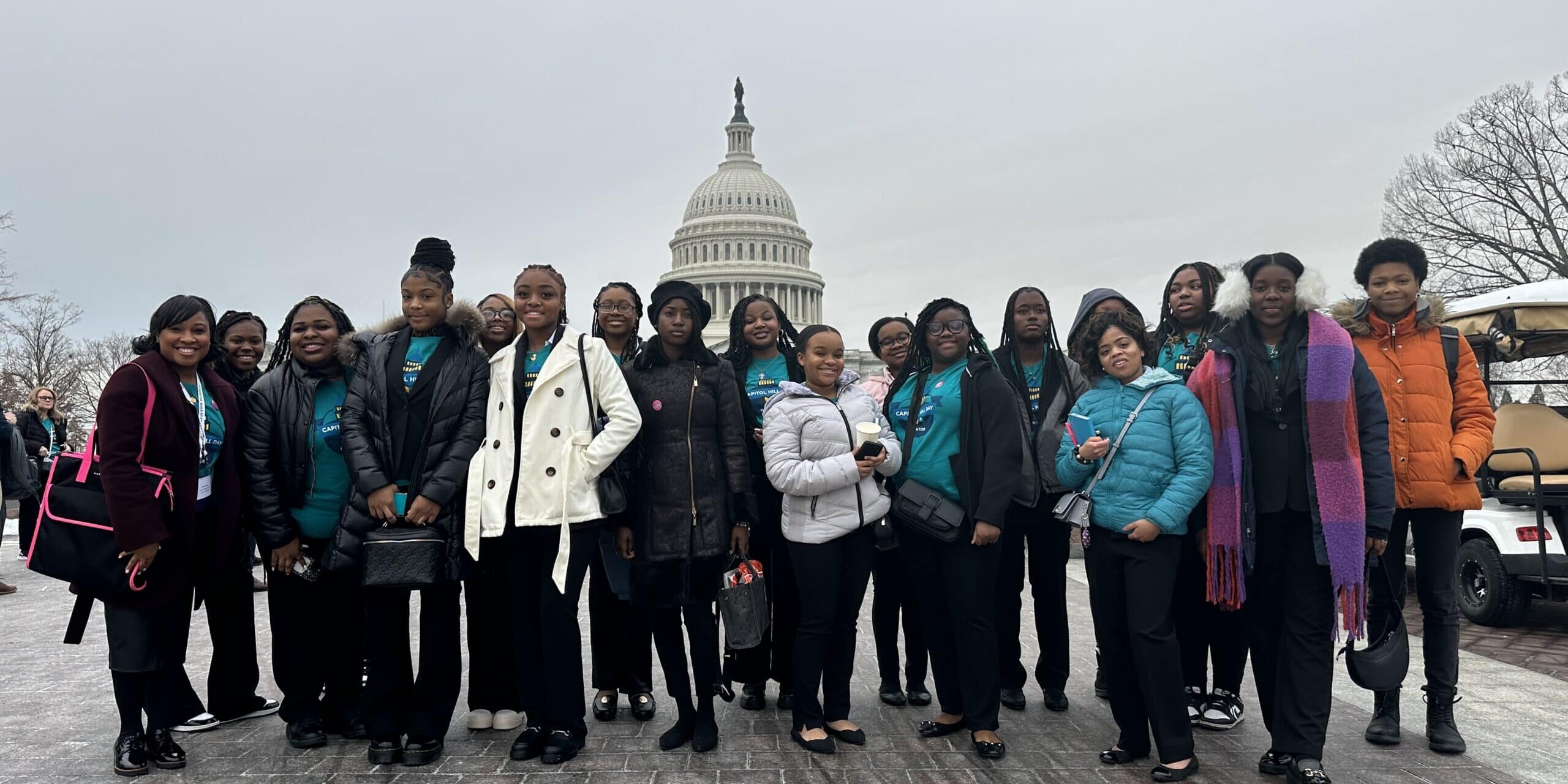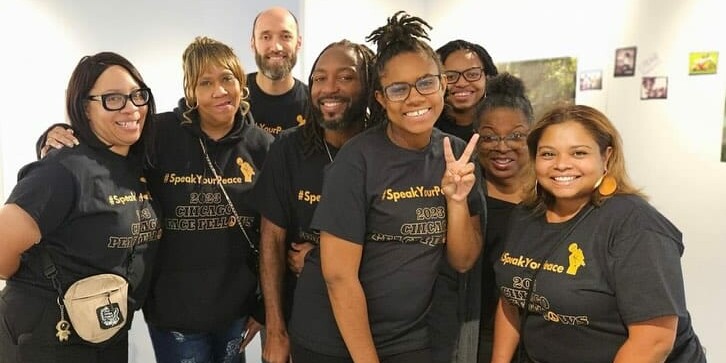On April 28, the 2022 cohort of the Chicago Peace Fellows met for the first time at the DePaul Center. The 2022 Peace Fellows cohort consists of activists, artists, social workers, and community leaders representing 14 community areas on the South and West sides of Chicago. Founded in 2019 in collaboration with the Partnership for Safe and Peaceful Communities, the Chicago Peace Fellows program is the only leadership development program that is built by and for grassroots community leaders on the South and West sides of Chicago.

The 2022 Peace Fellow Cohort will be the fourth group of Chicago Peace Fellows, following in the footsteps of over 60 alumni and joining a global network of Alumni featuring more than 100 grassroots leaders in over 30 countries. Pastor Reshorna, a 2021 Peace Fellow, spoke at the launch event and emphasized the value of the skills the Peace Fellows curriculum taught her. She spoke to the importance of learning an asset-based approach to community engagement:
“We had the opportunity to do asset mapping, to go out into our communities and see what was already there. Because most often, when we talk about our communities, people talk about what we don’t have. Well this approach says, ‘what do you already have in your community, what can you use to build on that, and how can you work with people to improve on that.“

The 2022 Peace Fellows were also welcomed by Guillermo Vásquez de Velasco of DePaul University and Deborah Bennett of the Polk Bros. Foundation. Both Velasco and Bennett spoke to the lasting influence of the Peace Fellows program and its ability to provide tools and connections for grassroots leaders.

Peace Fellows were given a preview of the GATHER curriculum that they would be participating in over the course of their Fellowship. GATHER is both a mobile platform for shared learning and a curriculum for people who want to build on the talents of their neighbors and the assets of their communities to make real and lasting change. Members of the Goldin Institute emphasized that the Peace Fellows curriculum is not like a typical high school or college class, but is for Peace Fellows to gain new tools and networks for their efforts at community engagement.

Through the GATHER platform, the 2022 Peace Fellows will engage in a 22-week course of intensive shared learning as well as group projects, culminating in a graduation event in September 2022. The curriculum has been designed in collaboration with grassroots leaders, based on their practical knowledge and hard earned wisdom.
At their first meeting, the new Peace Fellows also had time to get to know one another and explore the diverse interests, skill sets, and leadership styles of their peers. The 2022 cohort consists of leaders from a variety of backgrounds, including street outreach, pastoral work, violence prevention, and the arts. The launch provided opportunities for Peace Fellows to speak with one another about their interests and work as well as explore their different leadership styles. Peace Fellows explored their strengths and needs as leaders through a leadership compass activity, where they grouped themselves categories derived from the cardinal directions. Many Fellows understood themselves as being in the Southern or Western parts of the compass, having empathetic or analytical leadership styles. However, as they discussed their strengths as leaders, the Peace Fellows explored how they often fell into different styles to suit their circumstances, sometimes falling into the Eastern “idea-oriented” or Southern “action-oriented” sides of the compass.

As the 2022 Peace Fellows progress through their curriculum, they will continue to build on the strength of their diversity through a series of collaborative projects. The 2022 cohort is made up of motivated problem-solvers and community-builders and their strengths will be shared as they take on community-oriented projects. After a series of GATHER based workshops, the Peace Fellows will have the opportunity to use the new techniques and concepts they’ve learned in collaborative projects. The diverse skills of the Peace Fellows will go on to form projects that aim to have a continuing impact preventing violence and remediating its consequences.

Travis Rejman
Travis Rejman is the founding Executive Director of the Goldin Institute, a global non-profit based in Chicago that has inspired, equipped and connected grassroots leaders in over 50 countries over the last twenty years.



